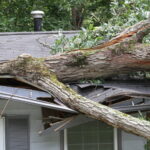Spiders are common pests that infest homes. Their creepy look can be scary and they have a reputation for giving venomous bites. However, not all spiders are poisonous. House spiders, in particular, are harmless. But this does not mean it is okay to have these pests in your house.
Spiders are capable of laying hundreds of eggs at once. That is why you must act right away if you have spiders in your house. To eliminate pests today, ensure your treatment plan addresses a possible infestation before it takes place. Pest control professionals know how to eliminate spiders in your attic, basement, or garage.
How to Know You Have Spiders at Home

Discovering the following in your house can mean a spider infestation is ongoing:
- Webs. Spider webs are common in basements; however, if your basement has an increased number of webs, this could mean you have a spider infestation. Remember that some spider species make tiny funnel-shaped webs while others build typical ringed webs.
- Flying insects. An increase in insect population in your house could make your home attractive to spiders. Spiders eat other insects and will move into your house once they discover an abundance of their food source there.
- Egg sacs. These small silk-wrapped balls can hold up to 200 baby spiders. Often, spiders lay them in dark quiet places.
- Humidity. Spiders like to stay in dark, moist places. When it becomes cooler and drier in fall, they may move to a comfortable environment like your basement, attic, or crawlspace.
- Spider bites. While spiders do not give aggressive bites to people, they will bite in self-defense. You may get bitten by them once you reach the cupboard or closet where they are hiding. But bites from non-poisonous spiders are not a cause for concern as they only appear as itchy bumps.
Ways to Eliminate a Spider Infestation
Spiders get into your house for food and shelter. Depriving these pests of such things will force them to find somewhere else to take up residence. Below are things you can do to make your house less appealing to spiders:
- Seal entry points. Spiders can easily squeeze through tiny cracks and holes. Check your house for these openings and seal them up. Also, fill in places where doors have shifted, foundations have cracked, and small gaps have developed.
- Vacuum. You should vacuum up spider webs, spiders, and egg sacs to prevent the pests from growing their populations inside your house.
- Check the basement. Given the damp, dark, and quiet environment in your basement, spiders are expected to thrive there. Do not overlook this area when you clean your house. Preventing spiders from invading your home begins from the bottom up.










